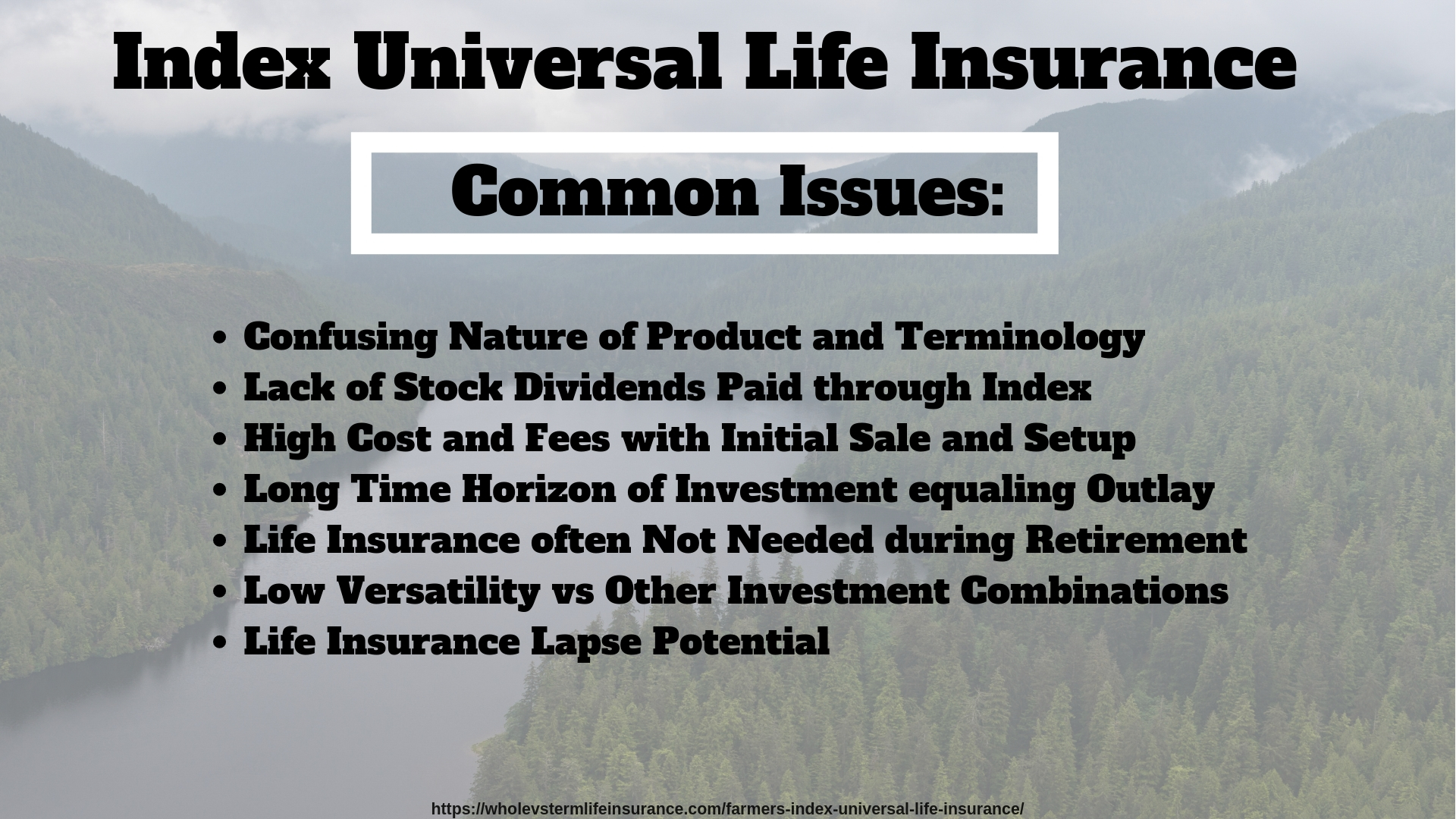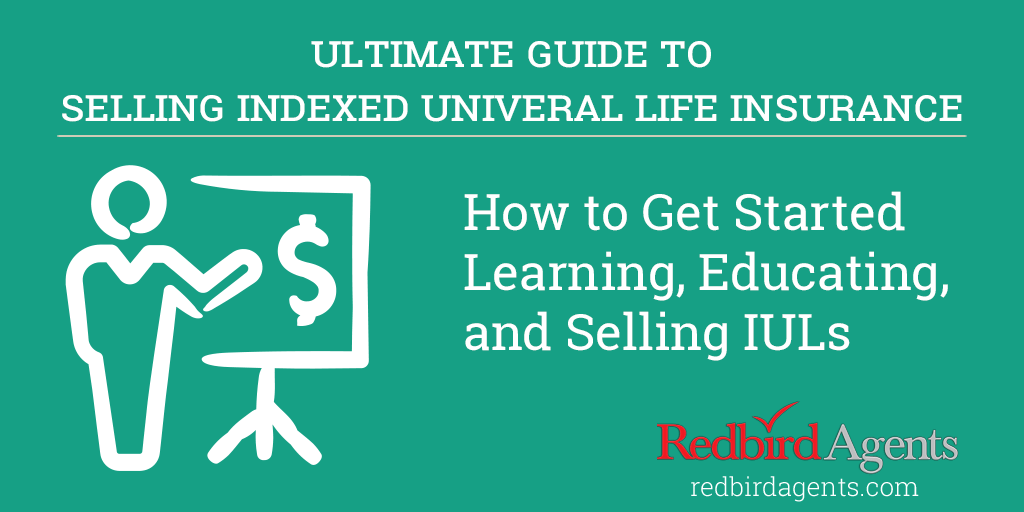All Categories
Featured
Table of Contents
Indexed Universal Life (IUL) insurance policy is a sort of long-term life insurance policy policy that combines the functions of conventional universal life insurance policy with the potential for cash money value development linked to the performance of a securities market index, such as the S&P 500 (IUL account value). Like other kinds of permanent life insurance policy, IUL gives a death benefit that pays to the recipients when the insured passes away
Money worth accumulation: A section of the premium payments enters into a cash value account, which earns passion over time. This cash money worth can be accessed or borrowed versus during the insurance policy holder's life time. Indexing option: IUL plans provide the chance for cash money value development based upon the efficiency of a stock market index.
What are the top Indexed Universal Life providers in my area?
As with all life insurance policy products, there is also a set of threats that insurance policy holders must understand prior to considering this kind of plan: Market risk: One of the main dangers connected with IUL is market danger. Since the cash money worth development is connected to the efficiency of a supply market index, if the index does improperly, the money worth may not grow as anticipated.

Adequate liquidity: Policyholders should have a secure economic scenario and be comfortable with the superior settlement requirements of the IUL plan. IUL enables flexible premium repayments within specific restrictions, but it's essential to maintain the policy to guarantee it accomplishes its designated goals. Interest in life insurance coverage: People that require life insurance policy coverage and a rate of interest in cash money worth development may discover IUL appealing.
Prospects for IUL ought to have the ability to recognize the auto mechanics of the plan. IUL may not be the most effective option for people with a high tolerance for market threat, those who prioritize affordable investments, or those with more immediate economic requirements. Consulting with a certified economic advisor who can provide personalized advice is essential prior to taking into consideration an IUL plan.
All registrants will obtain a calendar invitation and link to sign up with the webinar via Zoom. Can not make it live? Register anyway and we'll send you a recording of the presentation the following day.
How do I choose the right Tax-advantaged Iul?
You can underpay or skip costs, plus you might be able to readjust your death benefit.
Versatile costs, and a survivor benefit that might likewise be versatile. Cash value, along with possible development of that worth via an equity index account. Guaranteed IUL. A choice to allot component of the cash value to a set interest alternative. Minimum rate of interest warranties ("floorings"), however there may also be a cap on gains, usually around 8%-12%. Built up money value can be utilized to lower or possibly cover premiums without deducting from your survivor benefit.
Policyholders can decide the percentage designated to the taken care of and indexed accounts. The value of the picked index is taped at the start of the month and compared with the value at the end of the month. If the index enhances during the month, interest is contributed to the cash value.
The 6% is multiplied by the cash money worth. The resulting passion is added to the money value. Some plans compute the index acquires as the sum of the modifications through, while various other plans take approximately the everyday gains for a month. No passion is credited to the cash account if the index drops as opposed to up.
Indexed Universal Life Financial Security
The rate is established by the insurer and can be anywhere from 25% to more than 100%. (The insurance company can also transform the take part price over the life time of the plan.) For instance, if the gain is 6%, the engagement price is 50%, and the existing cash value total is $10,000, $300 is included in the cash worth (6% x 50% x $10,000 = $300).
There are a variety of advantages and disadvantages to think about prior to buying an IUL policy.: As with common universal life insurance, the policyholder can increase their premiums or reduced them in times of hardship.: Amounts attributed to the money value expand tax-deferred. The money worth can pay the insurance costs, permitting the insurance holder to lower or quit making out-of-pocket premium repayments.
How does Indexed Universal Life Protection Plan work?
Many IUL policies have a later maturation date than other kinds of universal life plans, with some finishing when the insured reaches age 121 or even more. If the insured is still active during that time, policies pay the death advantage (yet not typically the cash money value) and the profits might be taxed.

: Smaller policy stated value don't offer much benefit over regular UL insurance coverage policies.: If the index decreases, no rate of interest is credited to the cash worth. (Some plans provide a low assured price over a longer period.) Other investment lorries make use of market indexes as a criteria for efficiency.
With IUL, the goal is to benefit from higher activities in the index.: Due to the fact that the insurance provider just gets choices in an index, you're not straight bought stocks, so you do not profit when business pay returns to shareholders.: Insurers cost costs for managing your cash, which can drain pipes cash money value.
How do I get Iul Policyholders?

For lots of people, no, IUL isn't much better than a 401(k) - Indexed Universal Life policy in terms of saving for retirement. Many IULs are best for high-net-worth individuals trying to find ways to lower their gross income or those who have maxed out their various other retirement alternatives. For every person else, a 401(k) is a much better investment car due to the fact that it does not lug the high costs and costs of an IUL, plus there is no cap on the quantity you may make (unlike with an IUL policy)
While you might not shed any money in the account if the index decreases, you won't make rate of interest. If the marketplace turns bullish, the profits on your IUL will not be as high as a normal investment account. The high cost of costs and charges makes IULs costly and substantially less budget-friendly than term life.
Indexed universal life (IUL) insurance policy provides cash money value plus a fatality advantage. The money in the cash money worth account can make interest with tracking an equity index, and with some usually assigned to a fixed-rate account. Nonetheless, Indexed universal life plans cap just how much money you can build up (often at much less than 100%) and they are based on a possibly unstable equity index.
How can I secure Indexed Universal Life Protection Plan quickly?
A 401(k) is a far better choice for that objective because it doesn't lug the high fees and costs of an IUL policy, plus there is no cap on the amount you may earn when invested. A lot of IUL policies are best for high-net-worth individuals seeking to lower their taxed earnings. Investopedia does not give tax, financial investment, or economic solutions and suggestions.
If you're taking into consideration purchasing an indexed universal life plan, first talk with an economic advisor that can describe the subtleties and provide you an exact photo of the real potential of an IUL policy. See to it you comprehend exactly how the insurance company will determine your passion price, profits cap, and costs that could be assessed.
Table of Contents
Latest Posts
Equity Index Life Insurance
Iul Retirement
Universal Life Insurance Loans
More
Latest Posts
Equity Index Life Insurance
Iul Retirement
Universal Life Insurance Loans